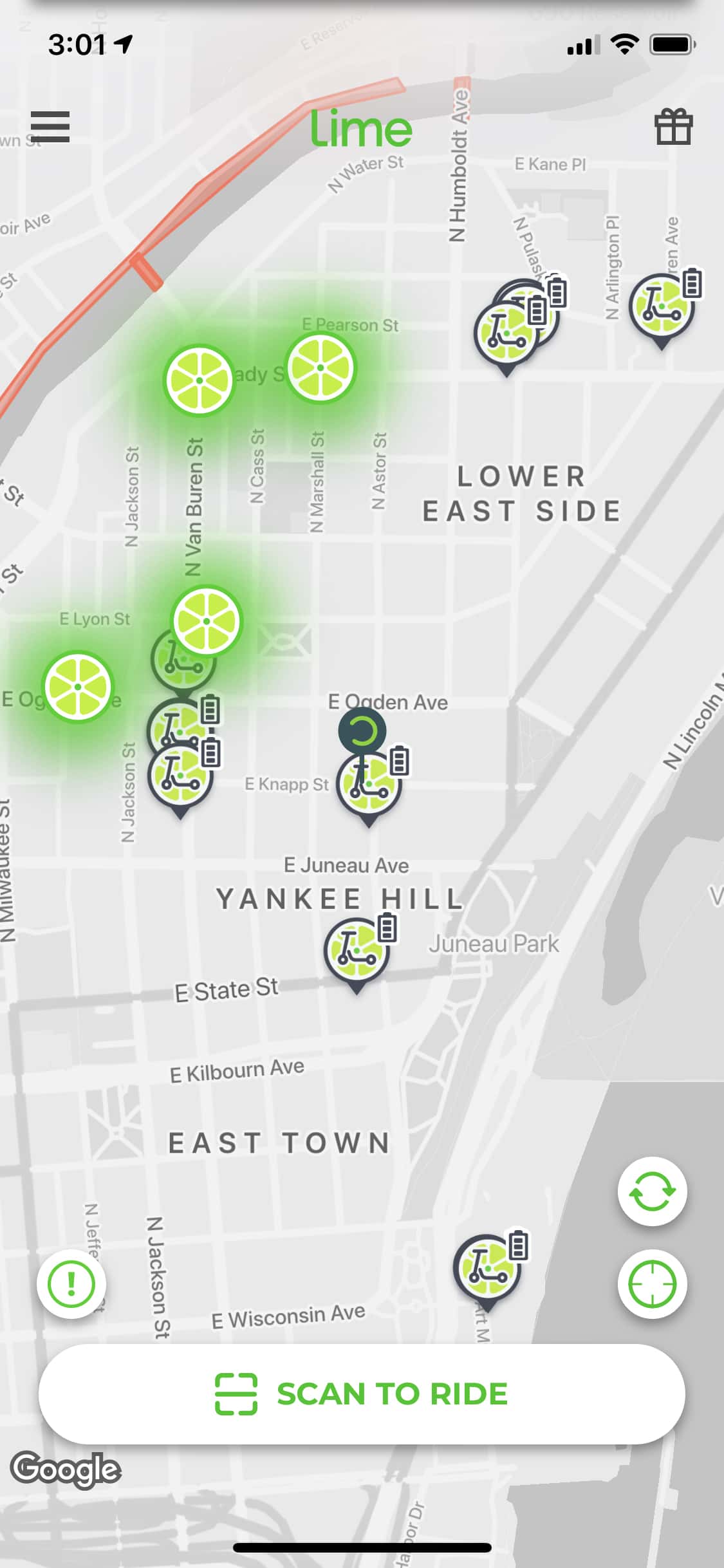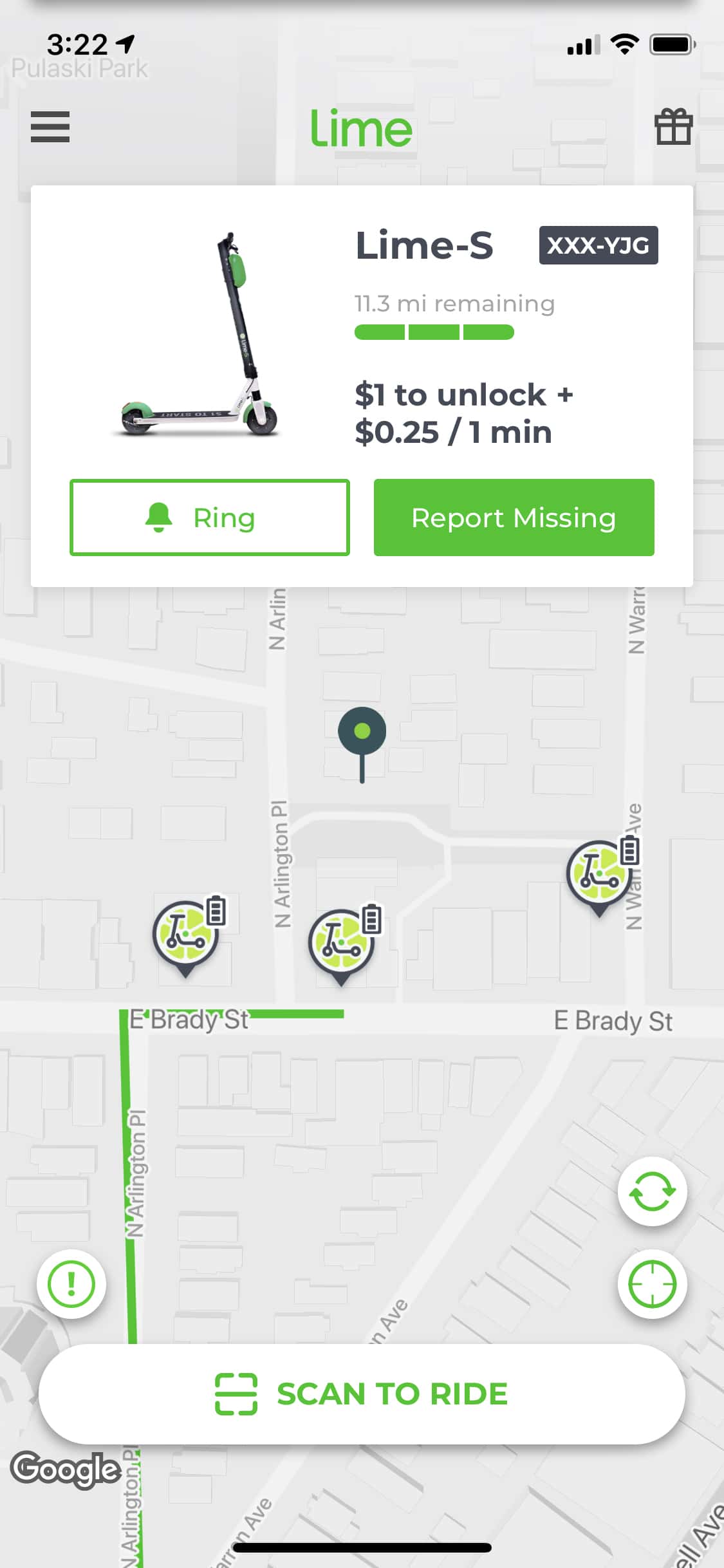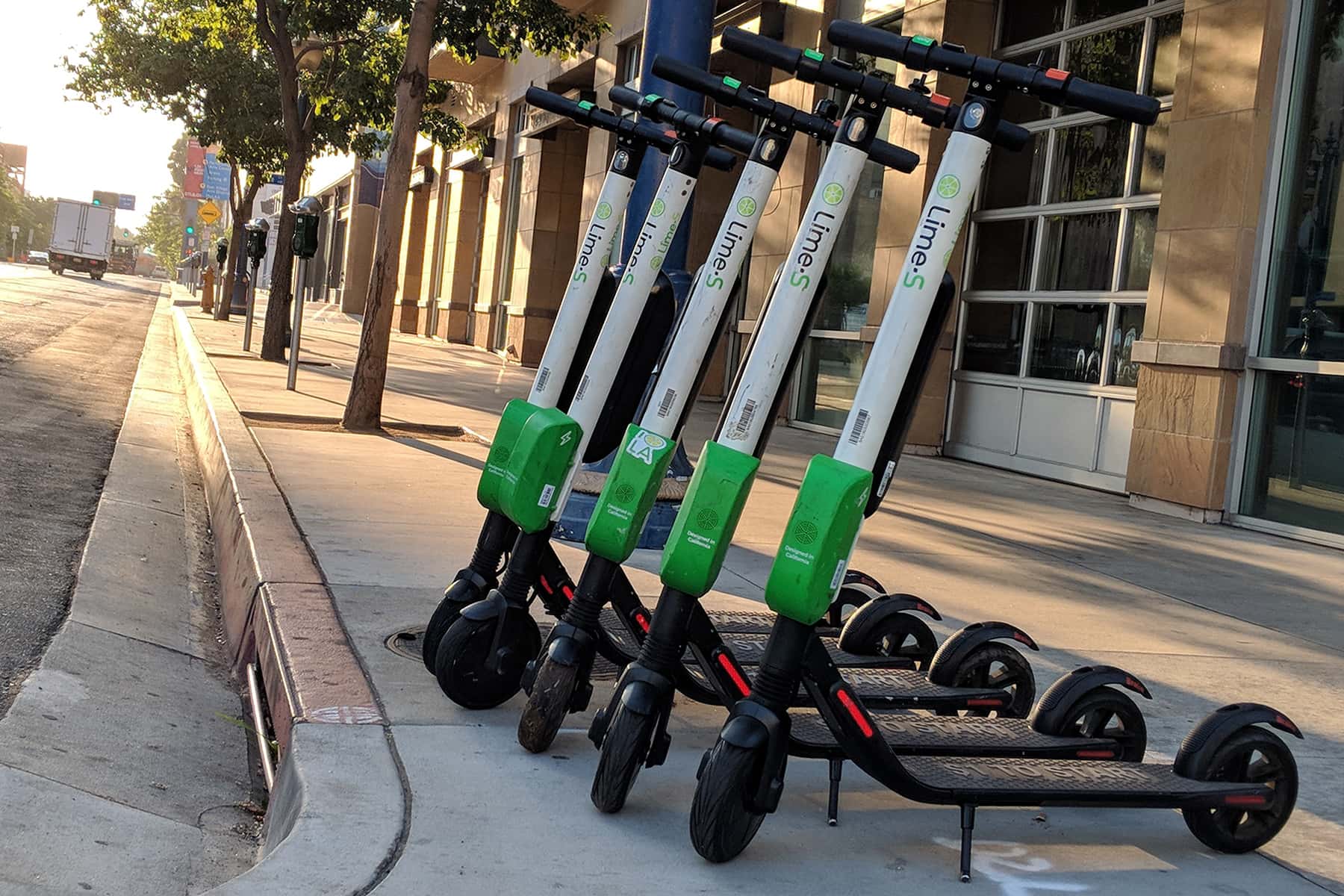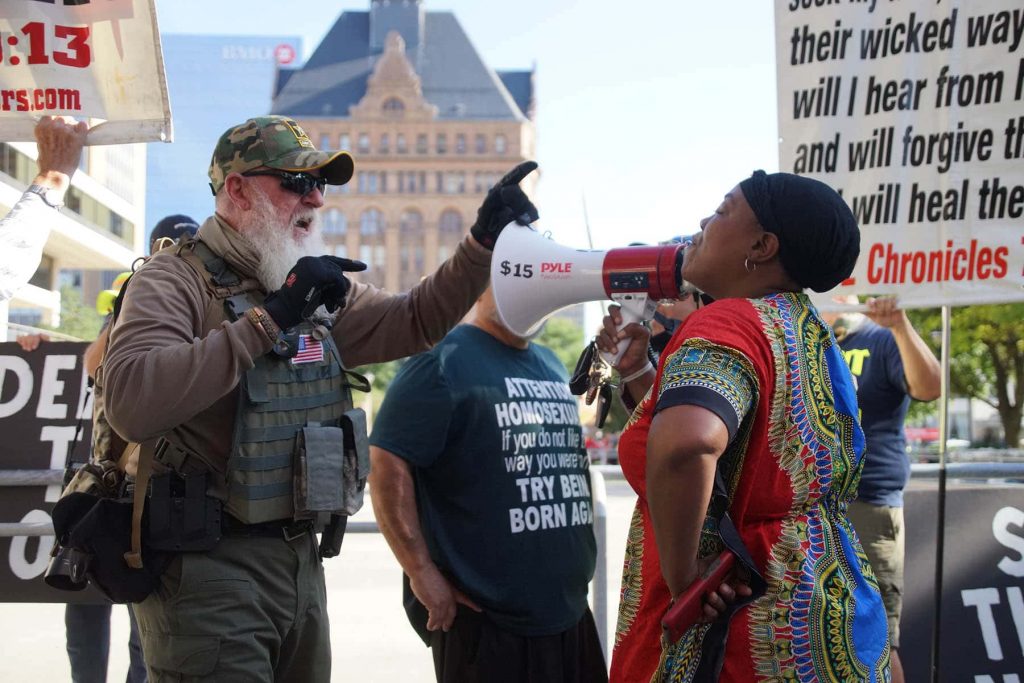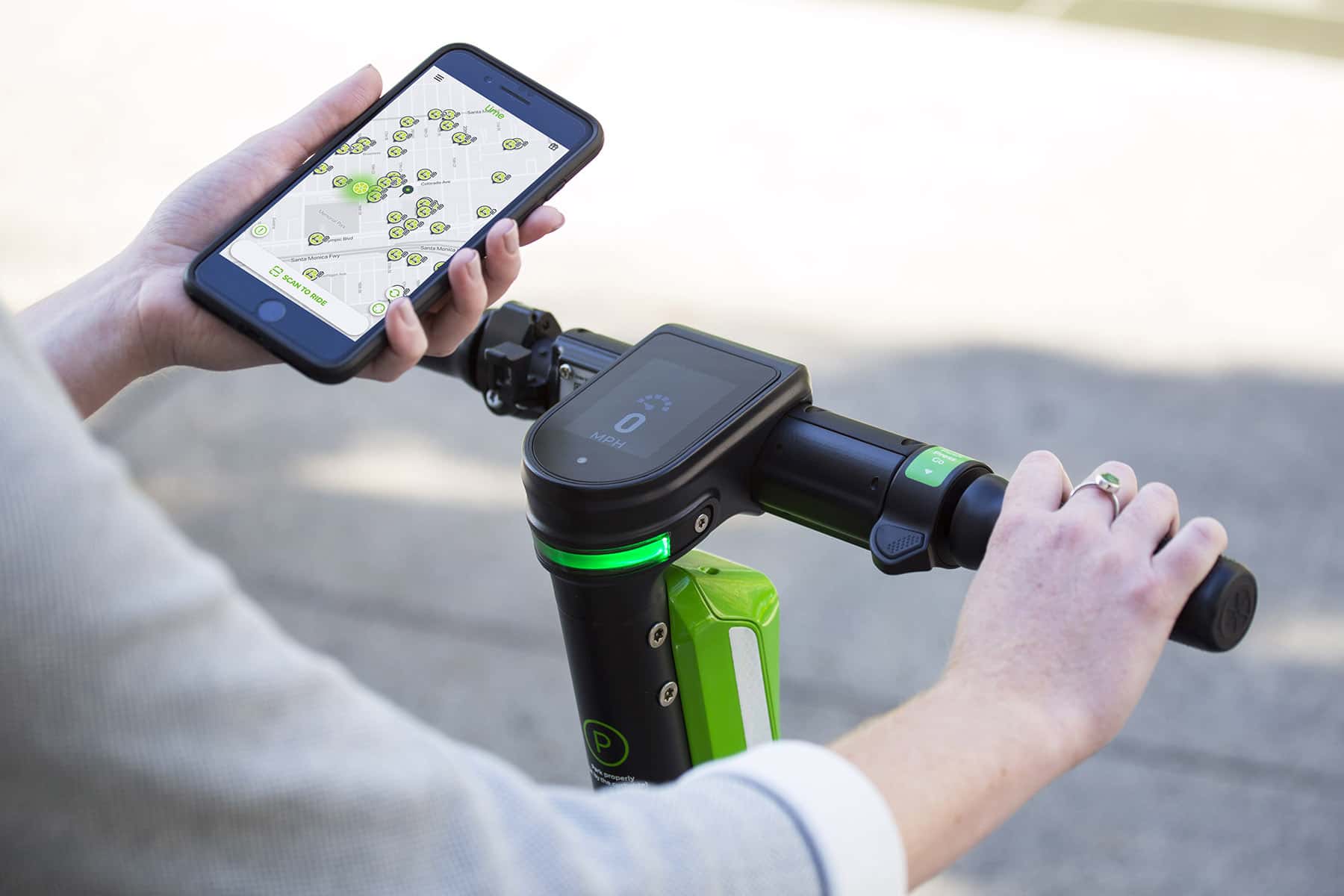
Following Governor Evers signing into state law the authorization for local governments to regulate the rental and operation of dockless scooters, the City of Milwaukee Department of Public Works (DPW) launched a pilot study.
Dockless scooter systems are privately operated and consist of self-service electric scooters made available to users on a short-term basis. Dockless scooters do not require a permanent or fixed location to reserve or return a scooter.
“This pilot is yet another example of the City of Milwaukee exploring opportunities to create a more robust, holistic transportation network,” said Commissioner of Public Works Jeff Polenske. “In utilizing best practices from other municipalities across the country, this pilot seeks to accommodate user demand while safely incorporating these mobility devices into the right of way.”
Goals of the pilot include:
- Increase transportation options: Dockless scooters have the potential to reduce reliance on motor vehicles and ride sharing services for short trips, decreasing congestion and air quality impacts.
- Expand access to transit: Dockless scooters may provide links to public transit, assisting with connectivity and solving the first-mile/last-mile problem.
- Evaluate impacts on access to the public right of way: Participants must show a commitment to keeping pedestrian ways, streets, and other public rights of way unobstructed by dockless scooters for other street users. Most importantly, dockless scooters must be parked and maintained in a manner that provides a clear path for people walking and maintains access to businesses, residential units, and other buildings.
DPW has begun accepting applications from scooter companies. The pilot is City- wide with three zones and operators may deploy an initial fleet of 350 scooters anywhere in the City. Operators may increase their initial fleet size up to 750 dockless scooters if the additional dockless scooters above 350 are equally distributed between Zones 1, Zone 2, and Zone 3. Additional fleet expansions up to 1000 scooters may be allowed based on performance metrics. Operators will be required to share data with DPW on a monthly basis, including ridership information, trip patterns, complaints, and crash information.“
“We expect operators to be community partners and have staff here in Milwaukee,” said Commissioner Polenske. “Operators will also be responsible for communicating with users, encouraging safe use of scooters, addressing improperly parked scooters, and properly redistributing scooters.”
The maximum speed limit for dockless scooters is 15 miles-per-hour. Users must obey the rules of the road and park responsibly. Riding on the sidewalk is forbidden, and parking on the Riverwalk is prohibited.
The Milwaukee Common Council approved a resolution on July 9 that prohibits scooter companies from operating in the City unless they are part of the pilot, which will run through December 31, 2019. Evaluation of the study will be ongoing, with DPW providing periodic reports to the Public Works Committee during this timeframe. A final report will be issued in 2020 to help determine if the City should pursue future licensing requirements for operators wishing to continue offering dockless scooters in Milwaukee.
On July 23, DPW approved the first company for participation in the City’s Dockless Scooter Pilot Study. Lime has proposed an initial fleet of 500 scooters, with 400 scooters available in Zone 1 and 50 scooters available in Zone 2 and Zone 3.
DPW has communicated to Lime that they must educate their users on proper use of scooters, including being responsible for handling all complaints. Scooter systems are privately operated and consist of self-service electric scooters made available to users on a short-term basis. Dockless scooters do not require a permanent or fixed location to reserve or return a scooter.
Elvert Barnes, Bird, and Lime

